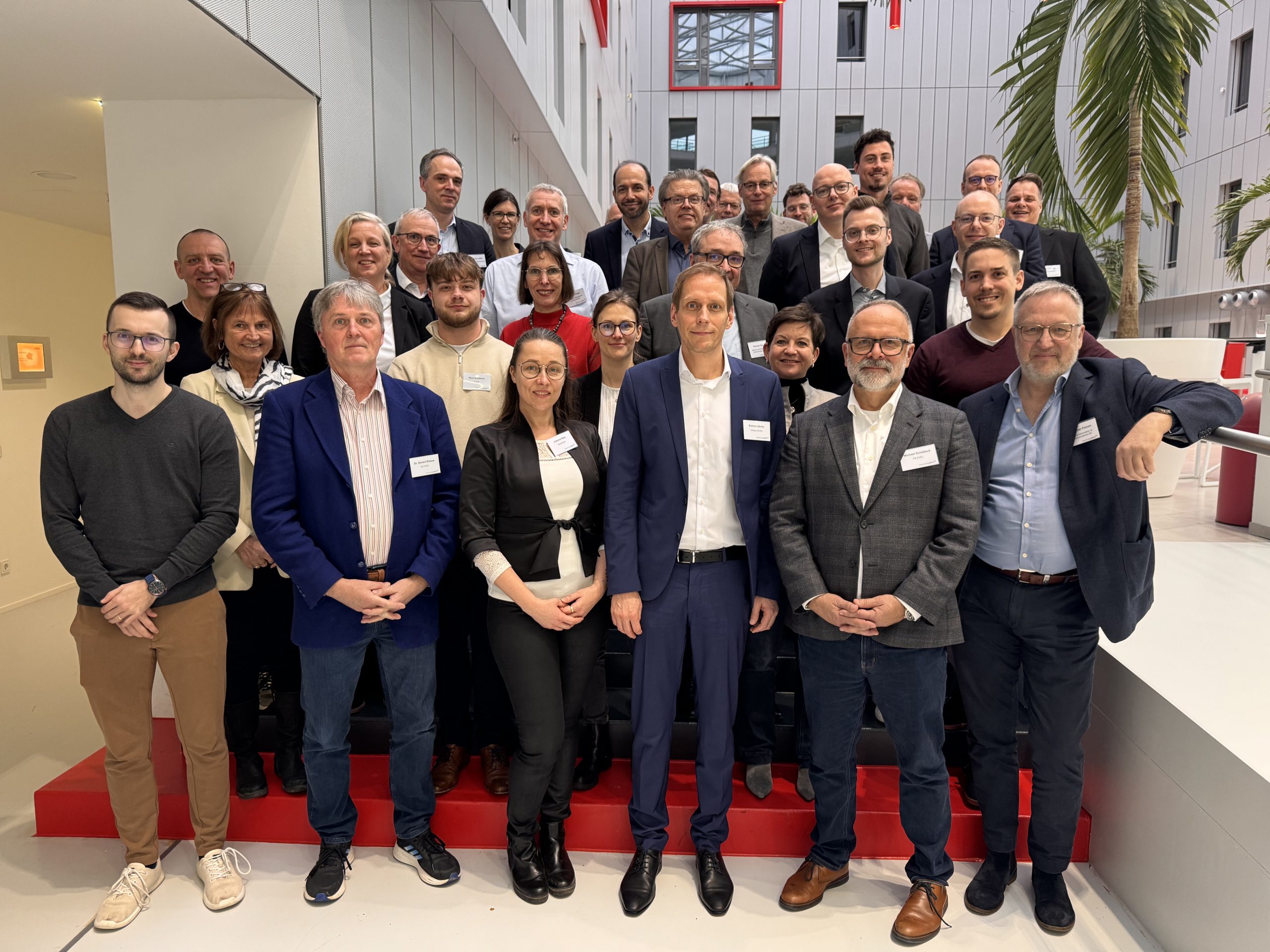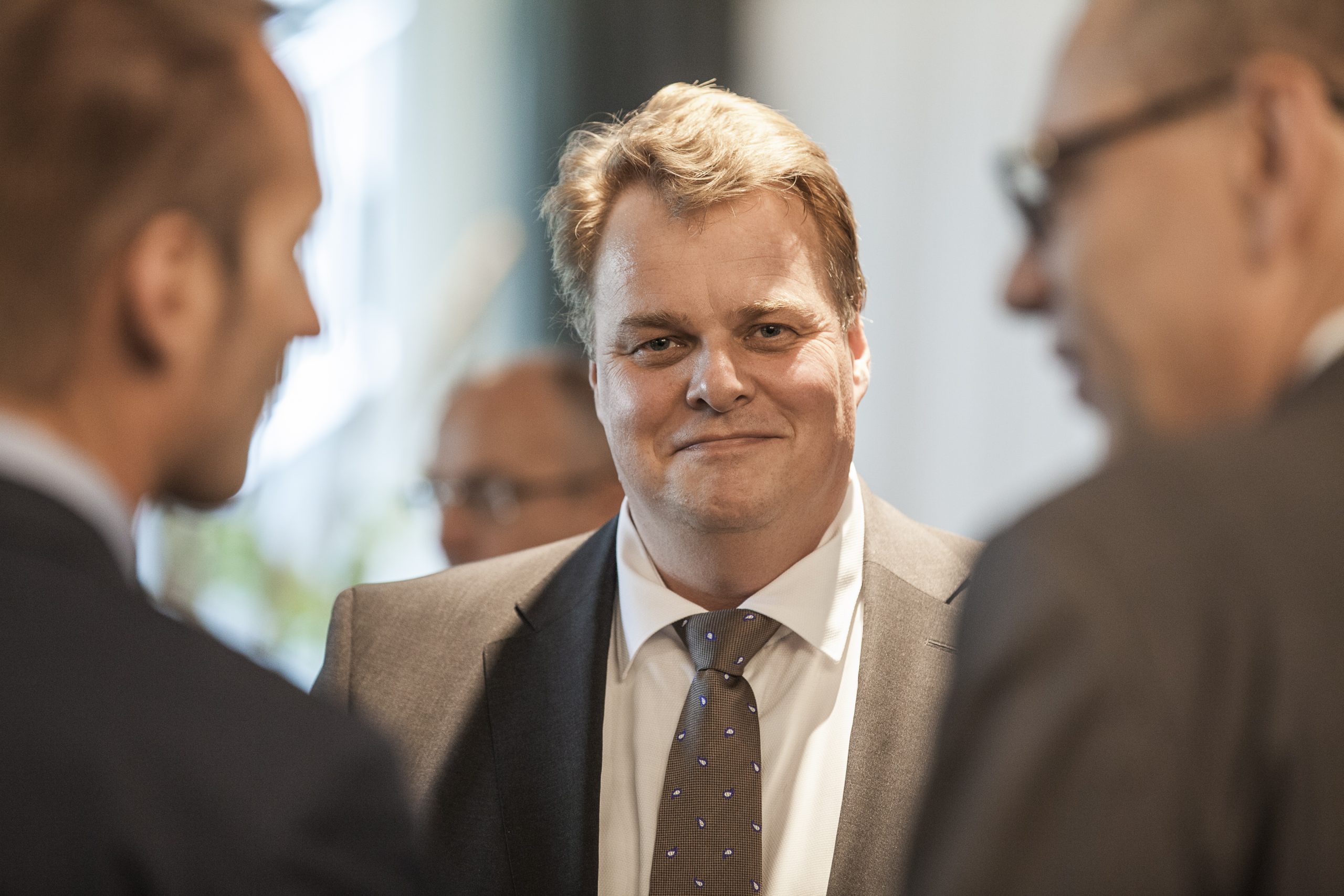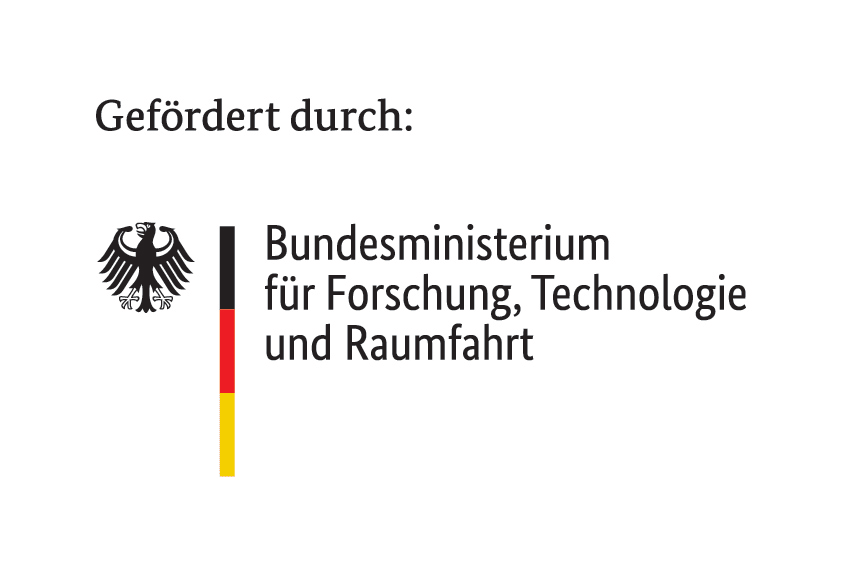Second general meeting of SmartLivingNEXT: course set for real operation
5. February 2025
16 minutes
On January 28, 2025, the SmartLivingNEXT community met for its second general assembly at the Forum Digitale Technologien in Berlin. With over 84 consortium partner organizations, this is the largest research network in the field of smart living in Germany to date – and is already taking big steps towards the consolidation phase at the halfway point.
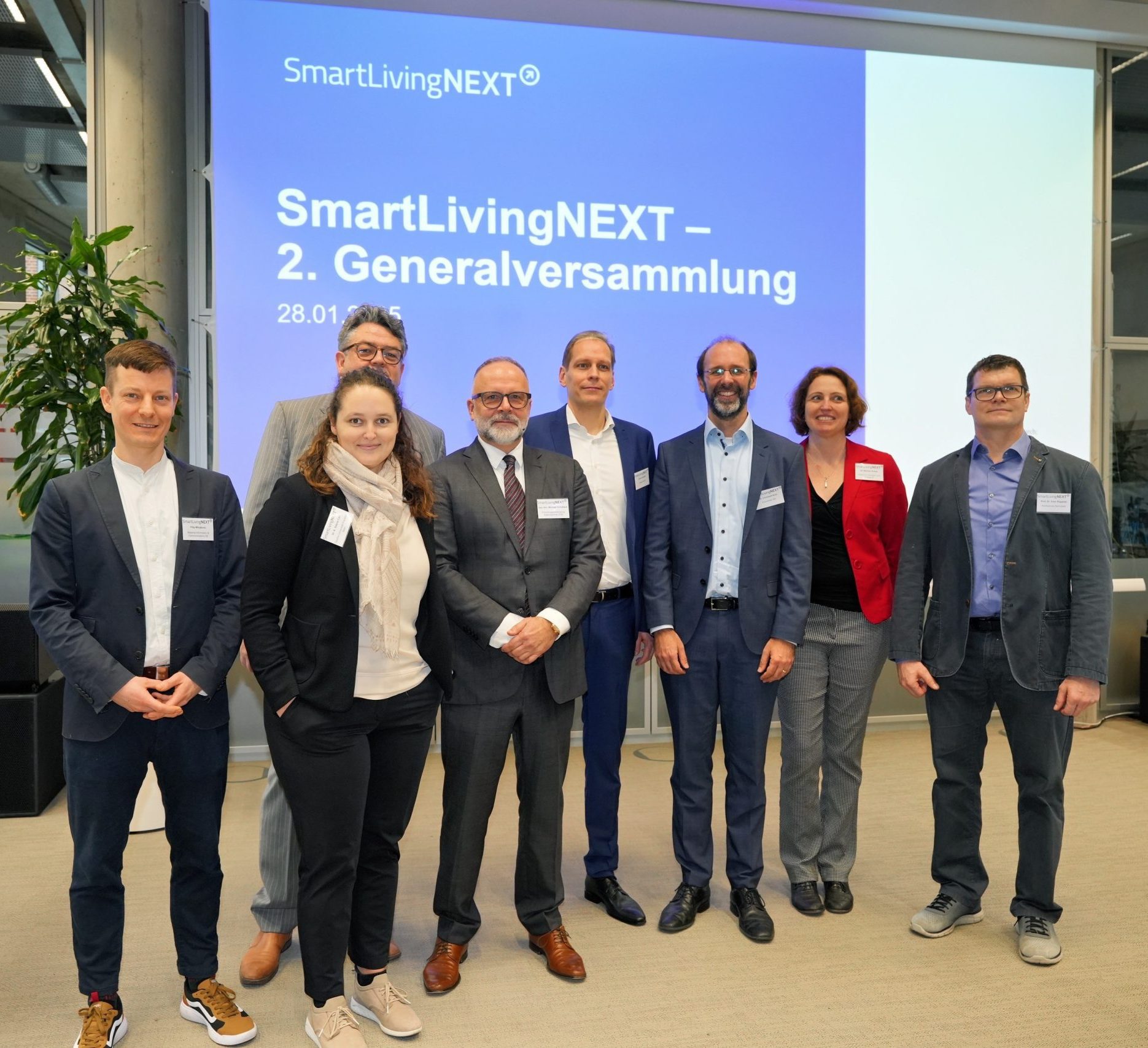
The all-day event was launched by Michael Schidlack, Research Association for Electrical Engineering at ZVEI e. V. and consortium leader of the SmartLivingNEXT pilot project. In his opening speech, he emphasized the enormous progress made by flagship project and satellite partners and welcomed the participants, including Dr. Klaus Glasmacher, the representative of the Federal Ministry for Economic Affairs and Climate Protection (German Federal Ministry for Economic Affairs and Climate Action (BMWK)), whose expertise made him one of the intellectual fathers of this project. With SmartLivingNEXT, a platform is being created for the residential building sector that does not yet exist in this form and is therefore unique at national and international level, emphasized Glasmacher. With the development of numerous sustainable smart living services, many sectors, such as the healthcare industry, would be relieved enormously in the future, both financially and in terms of personnel.
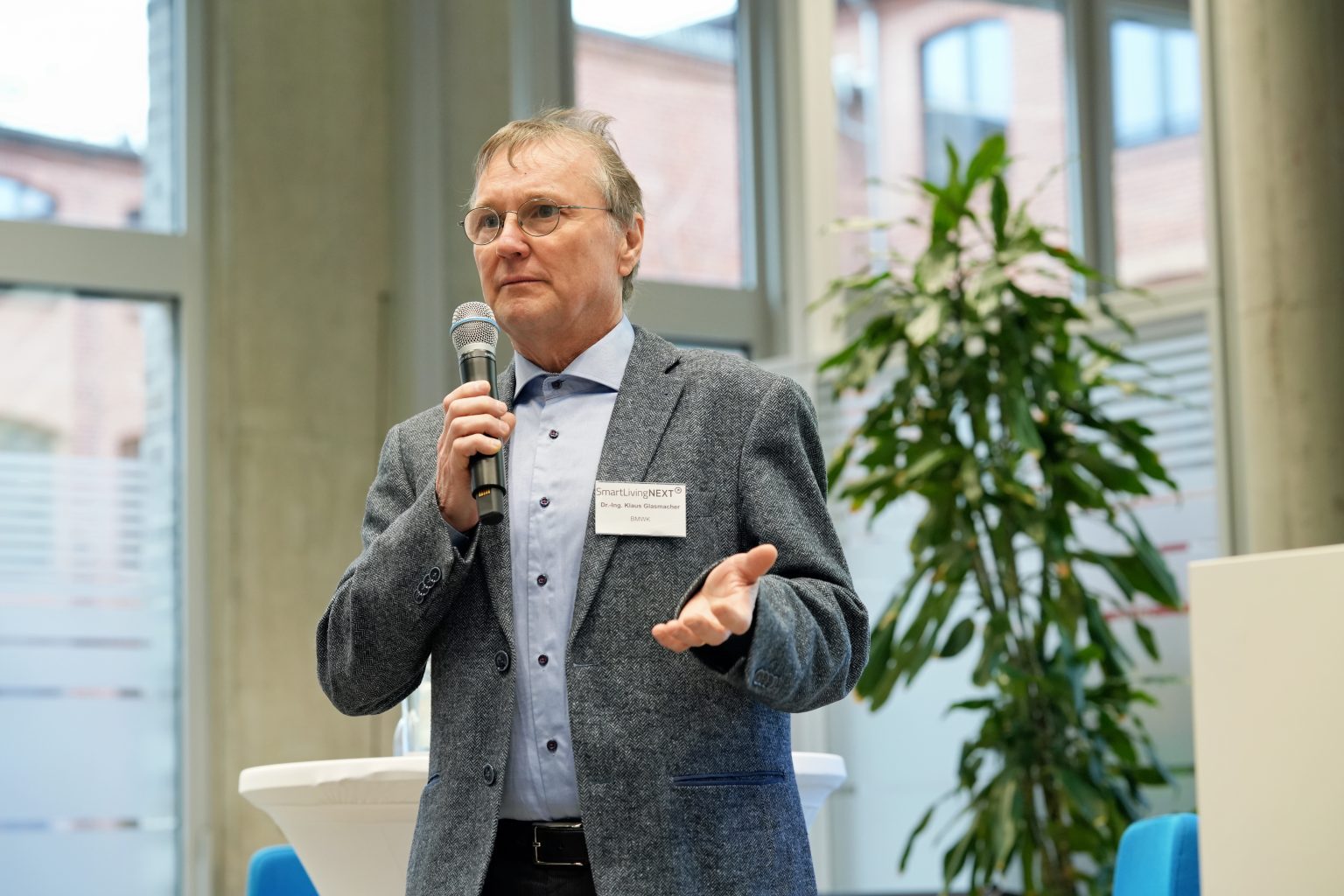
Focus on real operation
Michael Schidlack went on to explain what this means in concrete terms. “Our community is growing rapidly, on average by one new partner per week. Interest is growing. All the key technical foundations for the SmartLivingNEXT ecosystem have been successfully implemented. The integration of the first basic AI services and the connection of further data sources to the SmartLivingNEXT Dataspace have laid the foundation for a technically functional federated data ecosystem. This means we can now tackle the consolidation concept as early as this fall.” By complying with the EU Data Act, the project is setting new standards for secure and efficient data exchange in the smart living sector. This will position Germany as a pioneer in international competition and strengthen it as a location for innovation in the digital real estate industry. The main focus this year will be on preparing for the transition to real operations in 2027, with plans to have not only the technical, but also the economic framework conditions specified to such an extent by the end of this year that all relevant stakeholders can prepare their plans at an early stage.
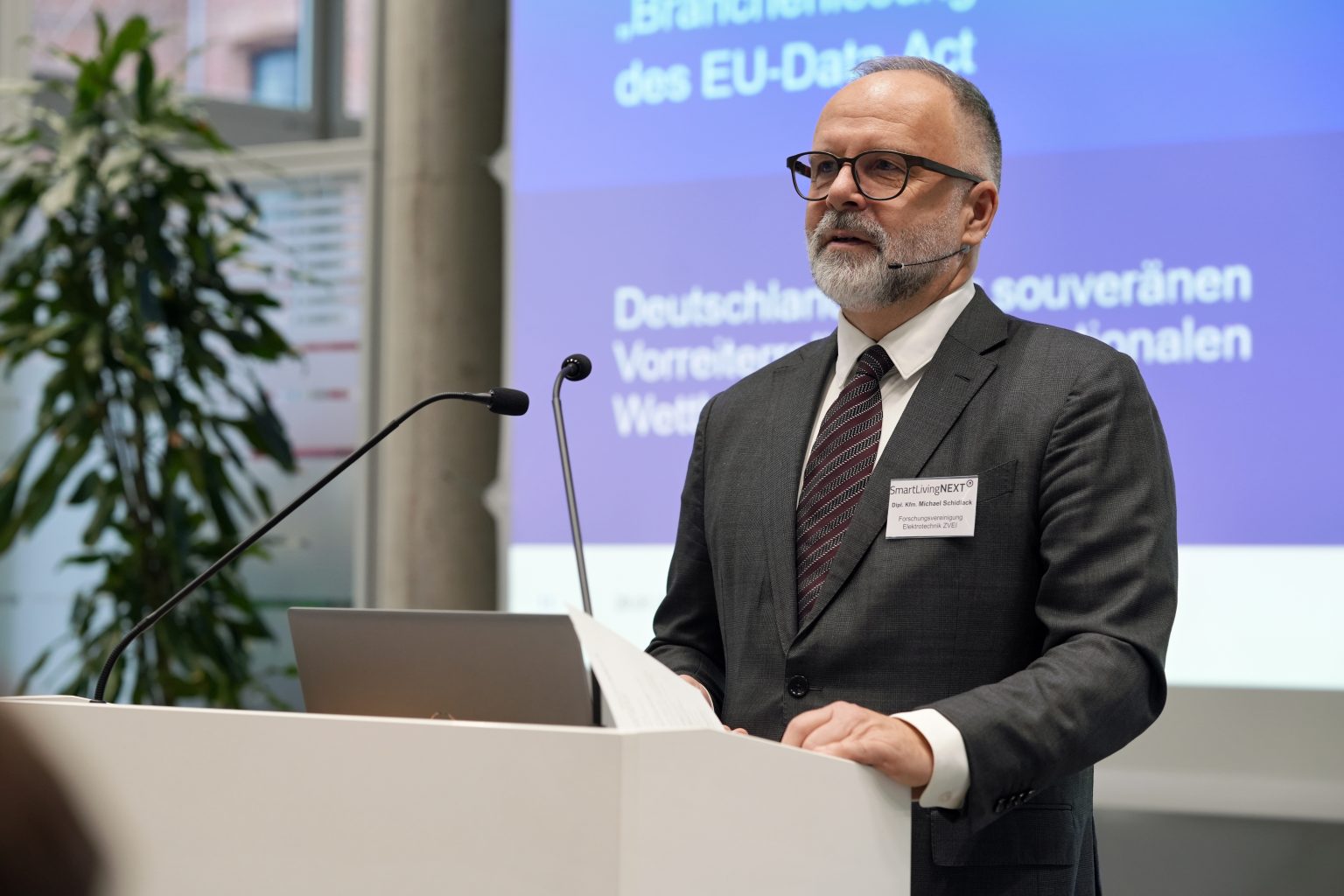
Shaping the digital future: Diversity, education and data protection as the key to smart living
The interview with Christine Regitz, President of the Gesellschaft für Informatik e. V. and Head of Women in Tech@SAP, was eagerly awaited by the participants, who were connected online on a large screen. She emphasized the decisive factors for a successful digital transformation, including early computer science education and the digitalization of schools, companies and administration. For her, smart living means more than just convenience: smart energy concepts, networked buildings for greater climate efficiency and digital care and healthcare solutions are key future fields for Germany’s economic success. European values remain an indispensable factor here. The focus must be on the users – especially their right to data protection and self-determination.
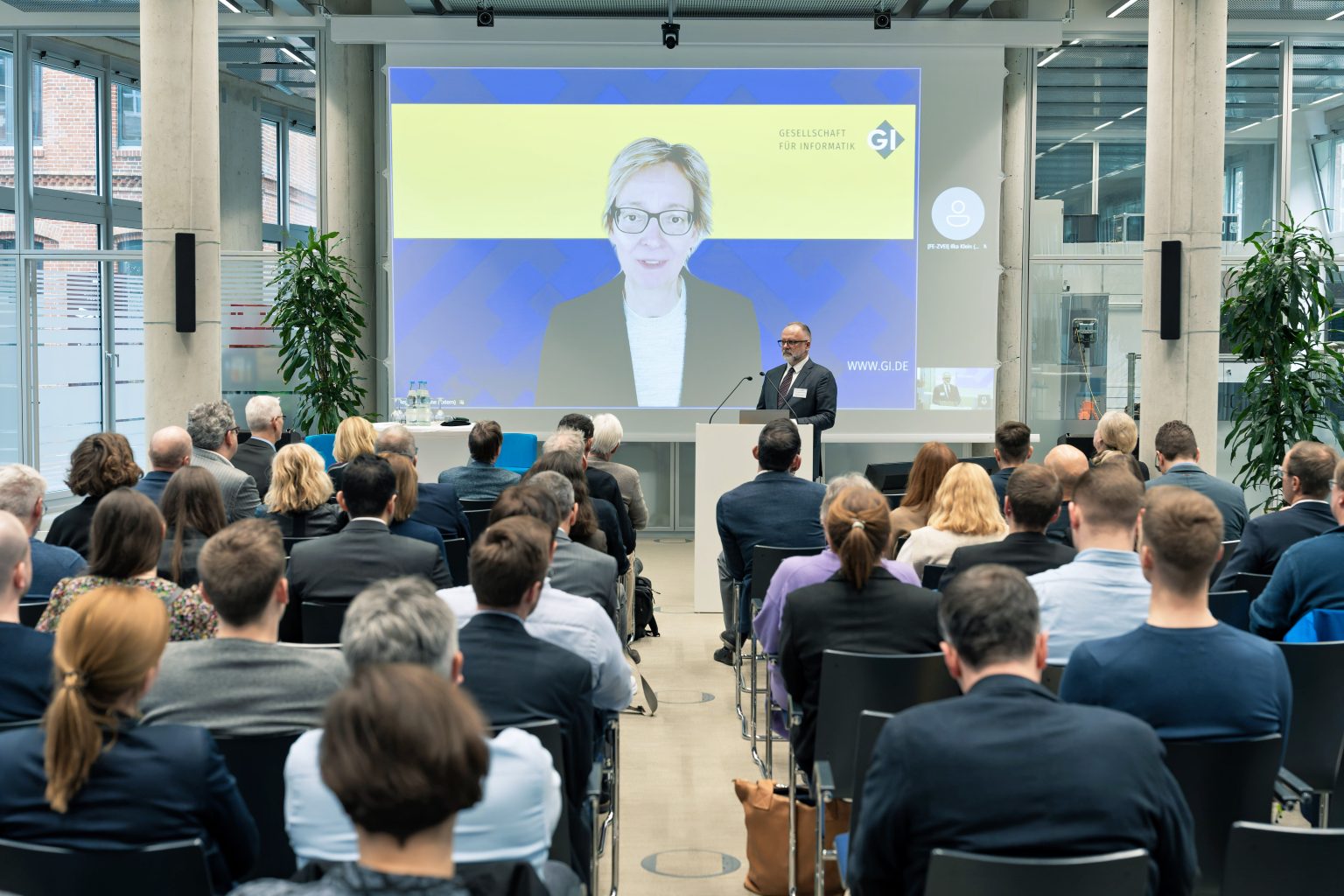
“AI has come to stay!”
Filip Milojkovic from Materna opened his presentation on “Onboarding and dataspace operation” with these words. “With SmartLivingNEXT, we are driving forward the technological maturity of ecosystem services in a targeted manner. Our goal is to complete the transition from specialized individual solutions to a scalable Dataspace-as-a-Service by 2026. This will create a standardized and marketable infrastructure that enables digital services to be integrated seamlessly and interoperably into smart living environments. This step is essential in order to turn research results into real, economically viable applications and to drive forward digitalization in the smart living sector in the long term.”
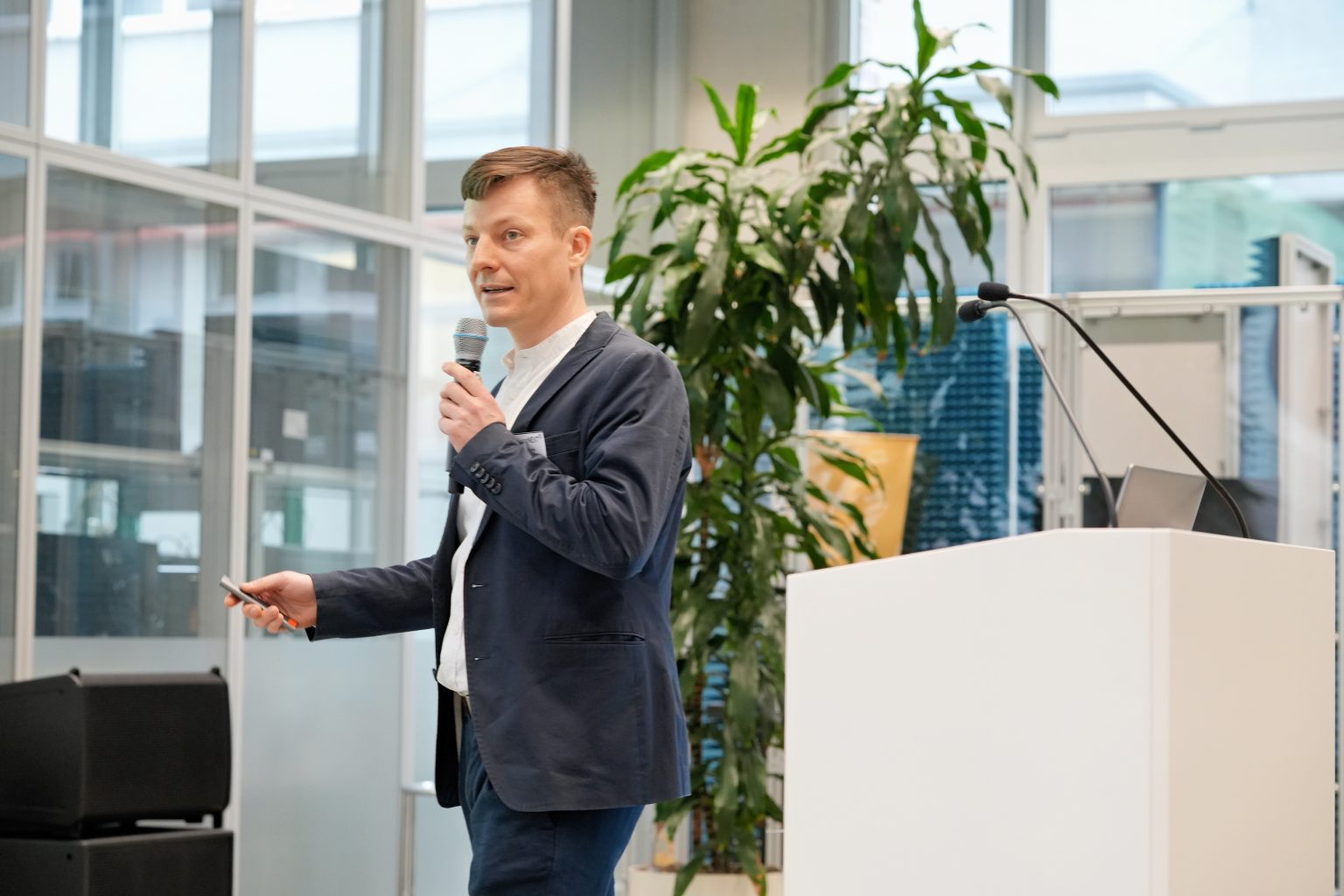
Governance for smart living data rooms
“For SmartLivingNEXT to establish itself in the long term, three aspects must be taken into account: Governance creates trust, user acceptance ensures widespread use, and economically viable business models ensure the sustainability of the ecosystem,” summarized Prof. Dr. Thomas Hess from LMU Munich and consortium partner of SmartLivingNEXT. “By autumn 2025, we will continue to drive forward and finalize the design of business models for digital ecosystems and the development of a framework for their management. This puts us well ahead of our schedule,” concluded Hess.
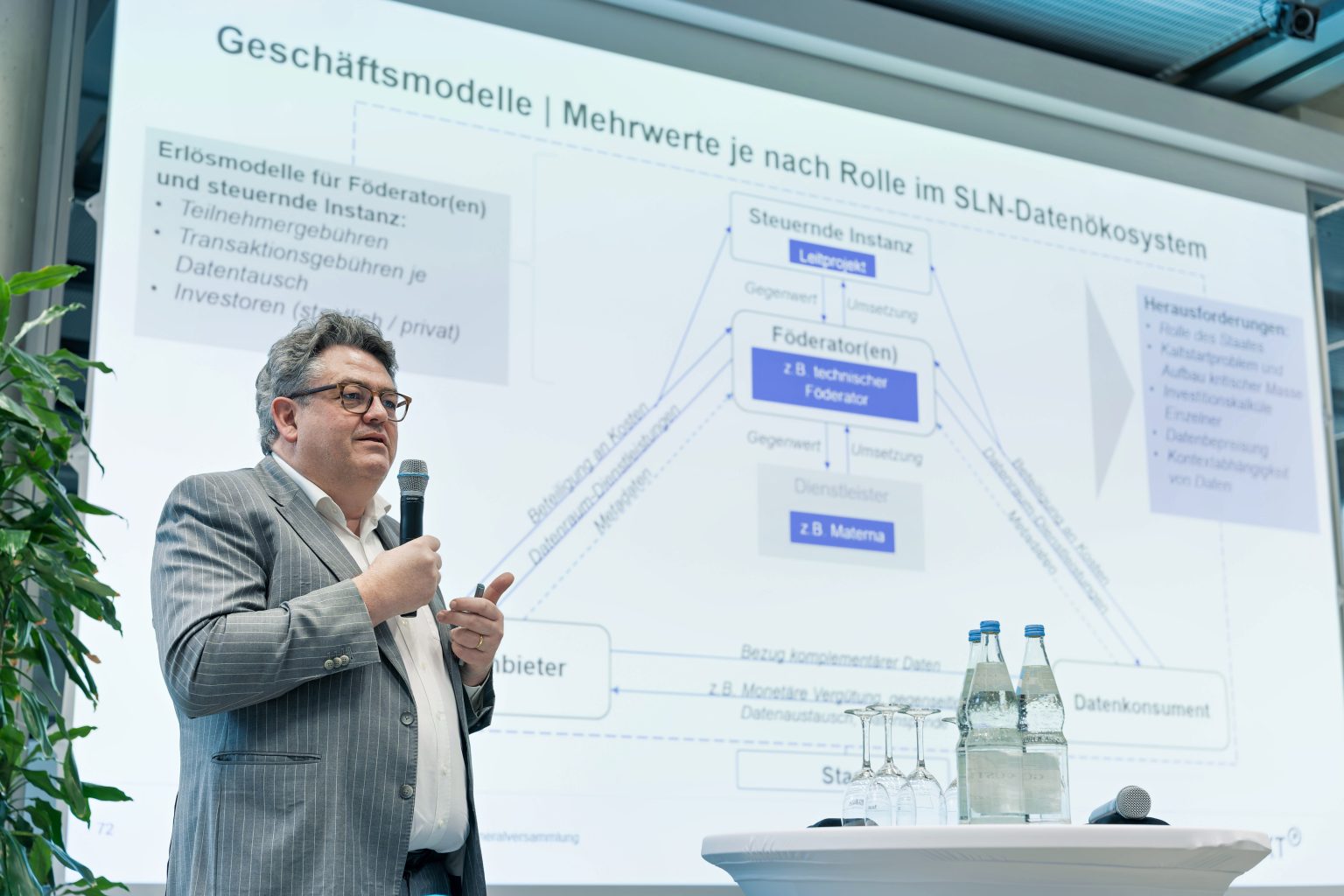
“Co2-neutrality can only be achieved through building optimization!”
This was followed by a discussion between Ingeborg Esser, Managing Director of GdW Bundesverband deutscher Wohnungs- und Immobilienunternehmen e. V. and project manager Michael Schidlack. She emphasized the central importance of digitalization for the housing industry. While the ForeSight preliminary project had already laid important foundations, there had been a lack of practical implementation to date. SmartLivingNEXT should now deliver decisive progress – especially for digital, low-investment measures in existing buildings.
A central problem is the lack of holistic networking of hardware and software systems in building operation with conventional technologies. Increases in efficiency can only be achieved if previously isolated systems work better together. Automated processes, easily accessible data exchange and new control logics, such as for heat pumps, are essential for this. The housing industry urgently needs a functioning data and networking infrastructure on which new digital services can be easily built. There is also considerable potential for tenants. In order to enable transparent communication about energy costs, the legal basis for processing consumption data needs to be adapted. There is also a need for basic digital services for rental and administrative processes, such as standardized digital identification of tenants and interested parties.
“The Smart Living Business Initiative, on whose board I am also active, actively supports SmartLivingNEXT because we believe there is an urgent need to put the research results into practice. The aim is to establish cross-connection standard, intelligent data spaces for smart living applications. To achieve this, we need to attract more financially strong industrial partners and develop concrete measures,” says Esser.
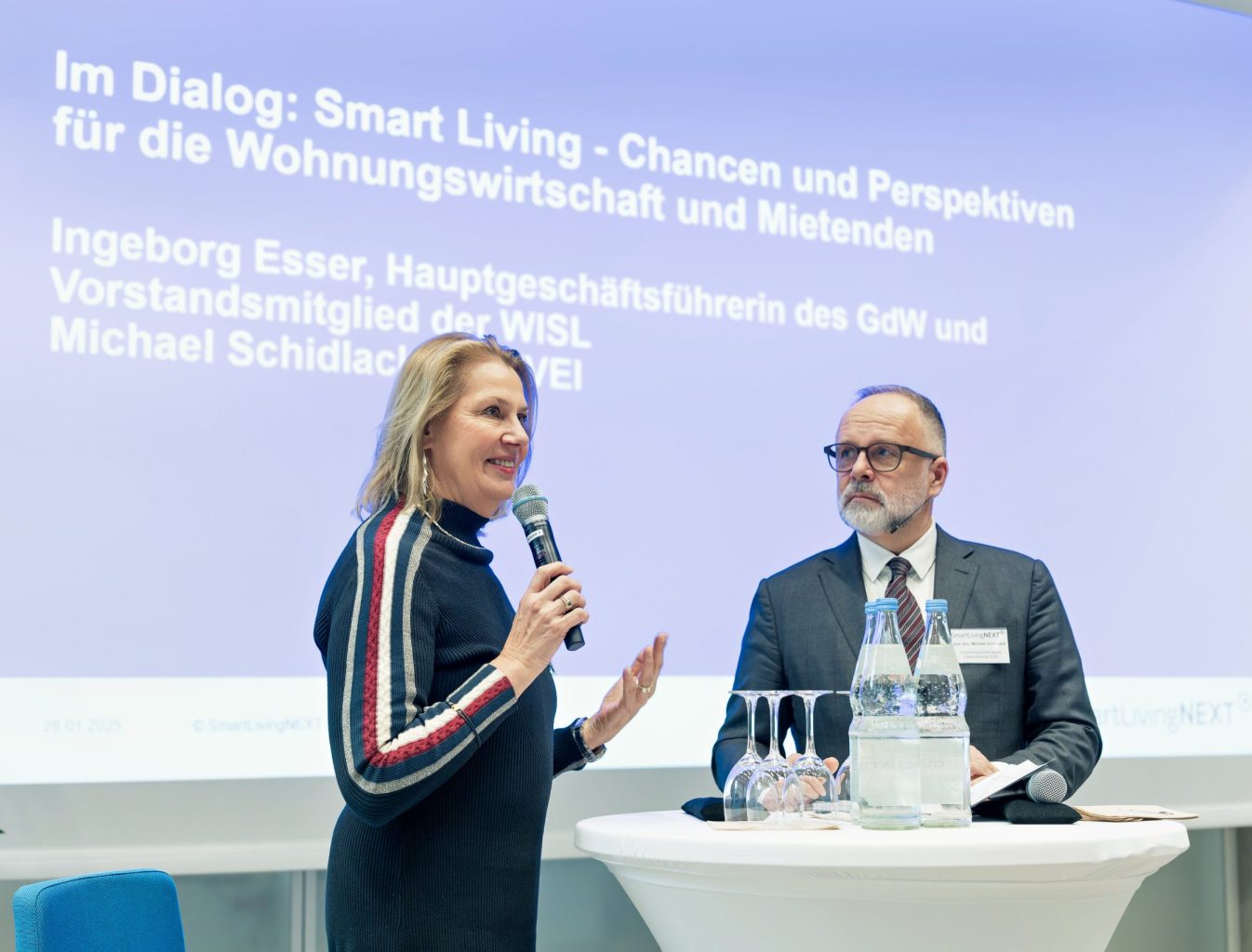
Proptech investments as the key to sustainable, digital living
Niklas Grunewald, Head of the Redstone Fund for Buildings, Infrastructure and Energy, explained in an interview with Michael Schidlack that Redstone invests in proptech companies that could disrupt the real estate market through technological innovation. The aim is to find solutions that offer ecological and economic efficiency. The proptech market is growing dynamically, with a focus on technologies that can reduce energy consumption and make the operation of buildings more efficient.
Solutions for energy management, digital management systems and AI-supported maintenance are particularly in demand. For start-ups in the smart living sector, Grunewald recommended a strong understanding of the market and a scalable business model, which must be underpinned by pilot projects and reliable figures. Successful technologies must measurably improve existing processes. Grunewald: “I see SmartLivingNEXT as extremely important for massively accelerating the scaling of innovative proptech solutions and making them more cost-effective. This could result in sustainable and resource-saving solutions for the future of living.”
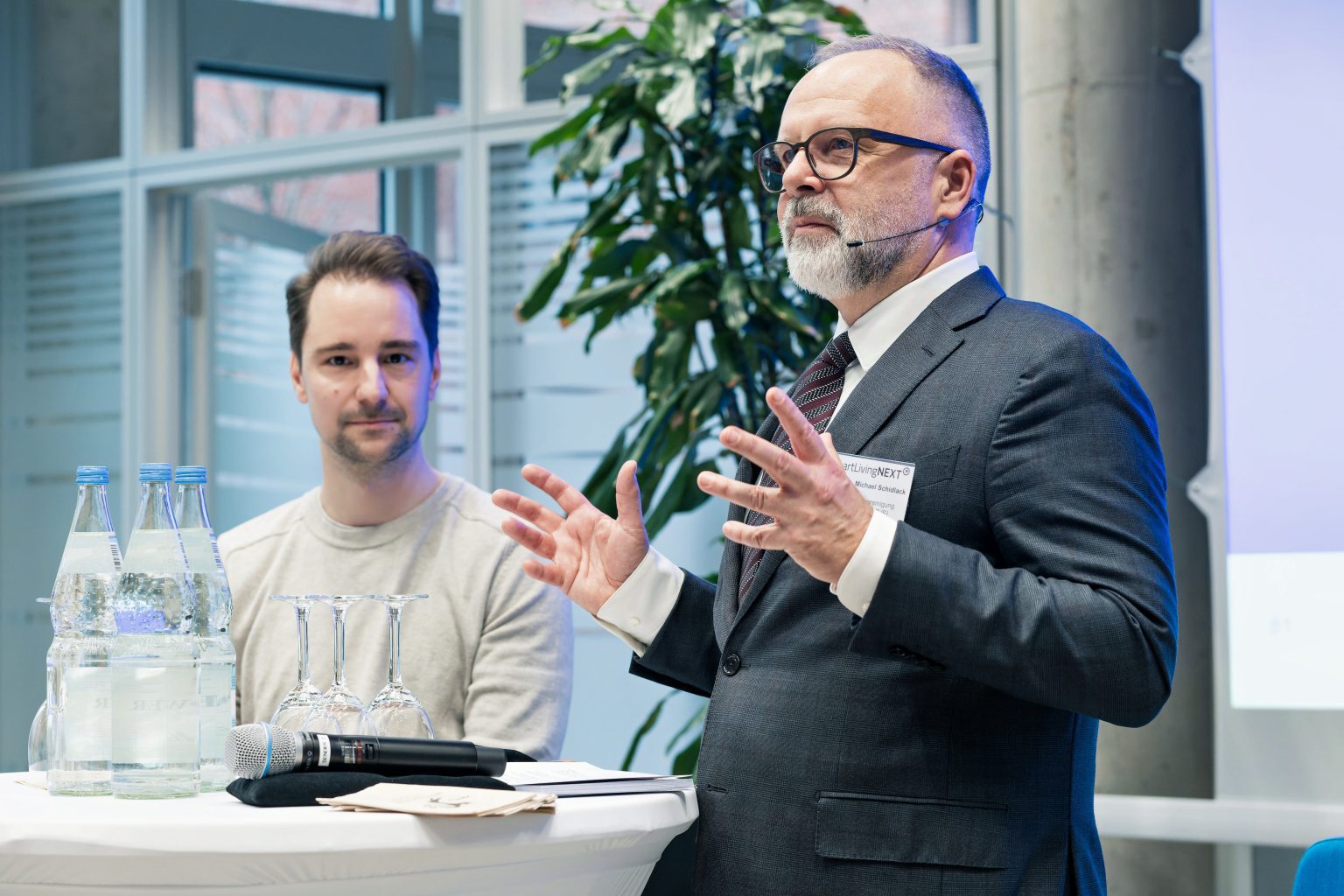
Smart energy management supports climate neutrality targets
Six specific use cases from all SmartLivingNEXT projects were then presented. Dr. Christoph Kost from the Institute for Solar Energy Systems ISE of the Fraunhofer Gesellschaft and consortium leader of FAME4ME kicked things off. In this use case, the possibilities of using AI-supported algorithms for sustainable energy management in smart living and building environments are analyzed. It examines how different user groups react to individualized dynamic electricity tariffs. “We are currently well on schedule and will now devote ourselves to preliminary studies and simulations in order to develop a user-friendly platform with regard to price signals and recommendations for action,” explained Kost.
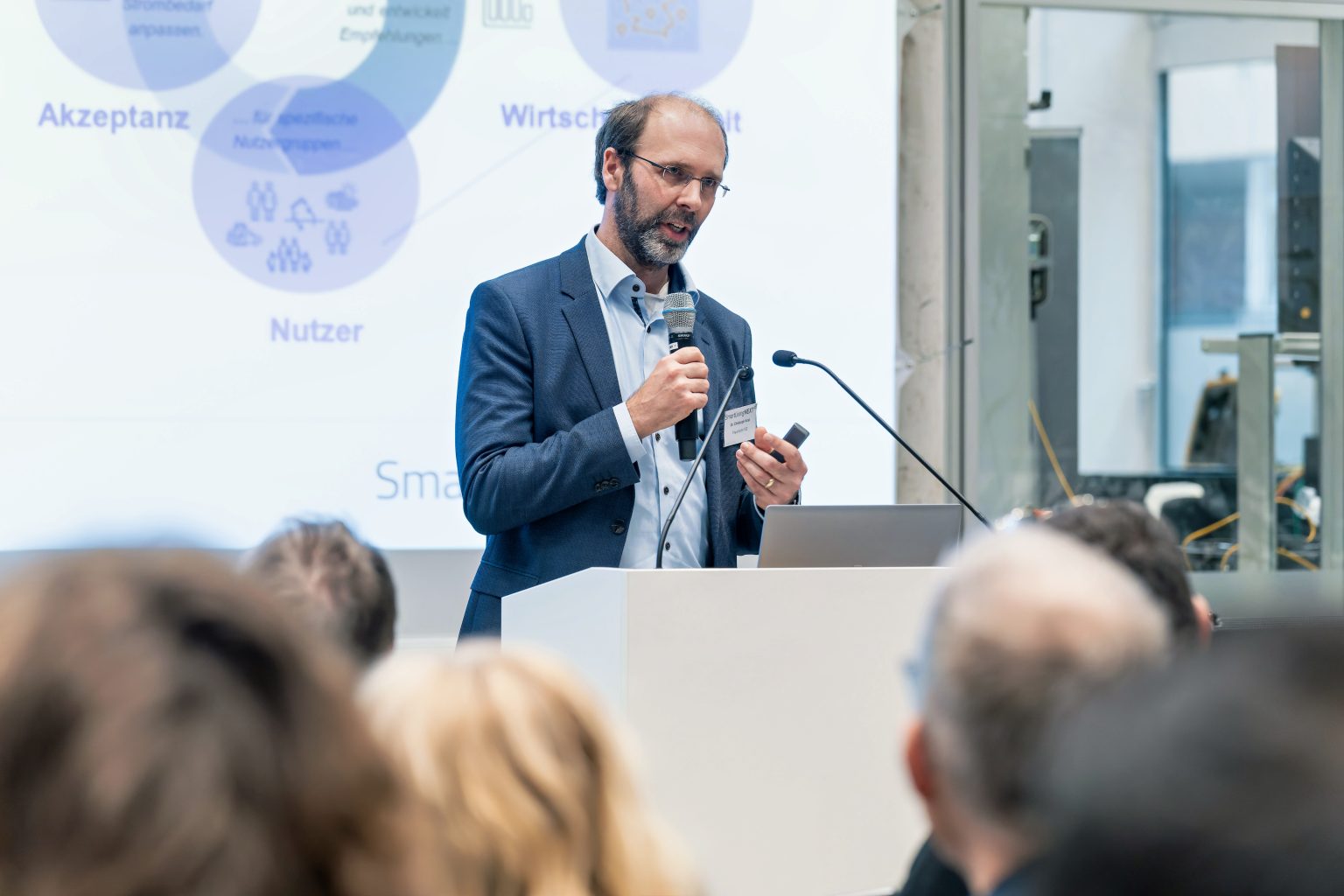
Self-determined data management
The COMET project, a component of the flagship project, collects labeled user data and develops a crowdsourcing app that enables the management of data access rights and the provision of data. For example, users can retrieve personalized information and statistics, such as energy consumption. Dr. K. Valerie Carl from Goethe University Frankfurt am Main and consortium leader at COMET, presented the goals for 2025 to the participants. In the first quarter, the user evaluation of generative AI user interfaces will take place and the statistics service will be improved with additional algorithms. The final evaluation of the user interface and participation mechanisms will then be carried out in the second quarter. The development of an expert chatbot on sustainability, which will be integrated into the crowdsourcing app, is planned for the third quarter. Carl concludes: “In the fourth quarter, the app will be published, the regular data release will be activated and the connection to the SmartLivingNEXT Dataspace will be established. This will give data owners the opportunity to actively participate in the SmartLivingNEXT ecosystem and provide their data voluntarily.”
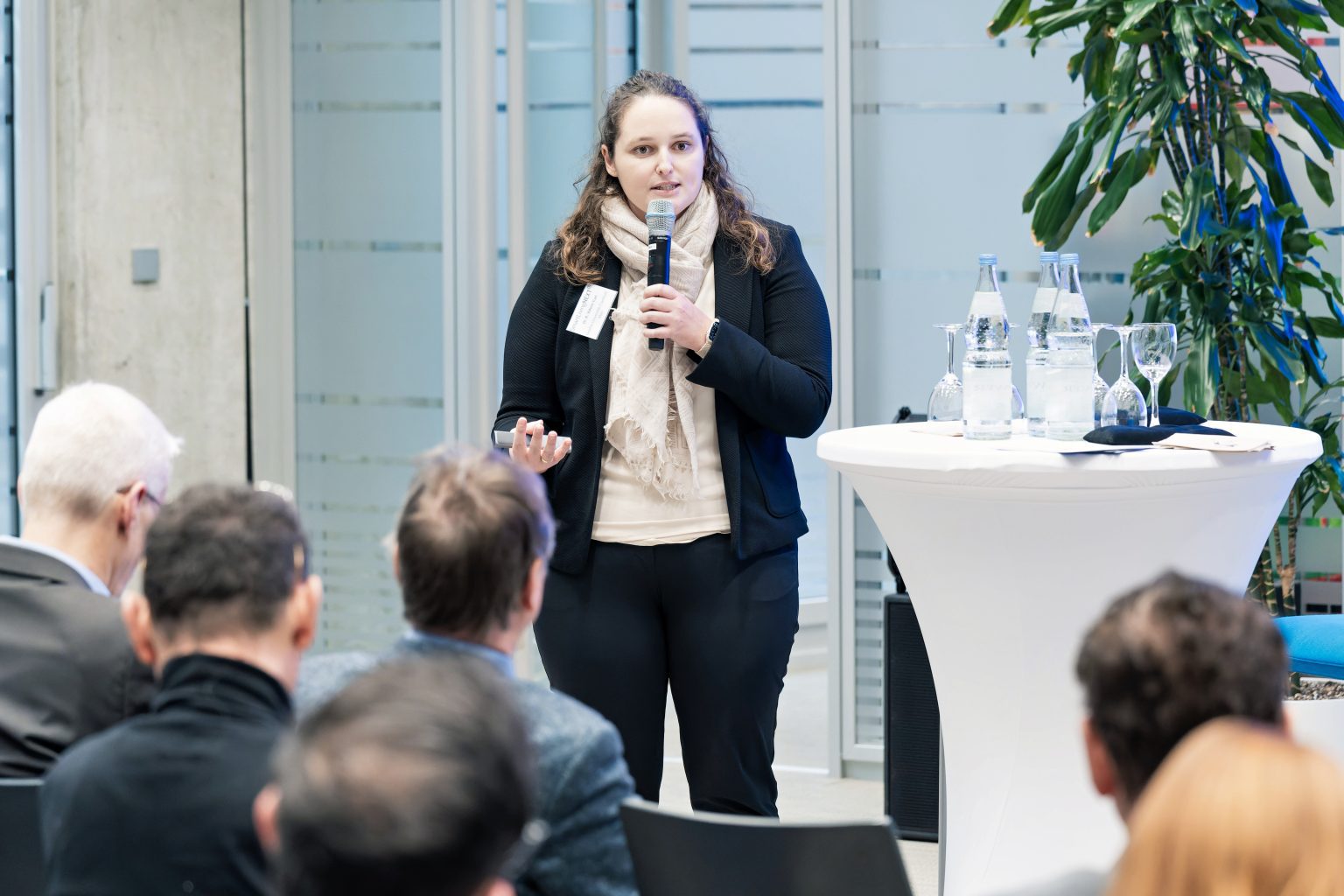
Intelligent planning: care and remodelling measures
The aim of BIM-4-CARE is to improve the planning of care requirements, conversion measures and the technical implementation and interoperability of system installations. Professor Sven Rogalski from Darmstadt University of Applied Sciences reported that a total of 96 parameters could be documented for the social assessment, with 1,056 data points being collected. 11 living environments have already been fully recorded. 243 structural parameters were recorded, and over 540 square meters were documented in detail using 360-degree recording. In this context, 2,673 data points on buildings were recorded, enabling a well-founded analysis.
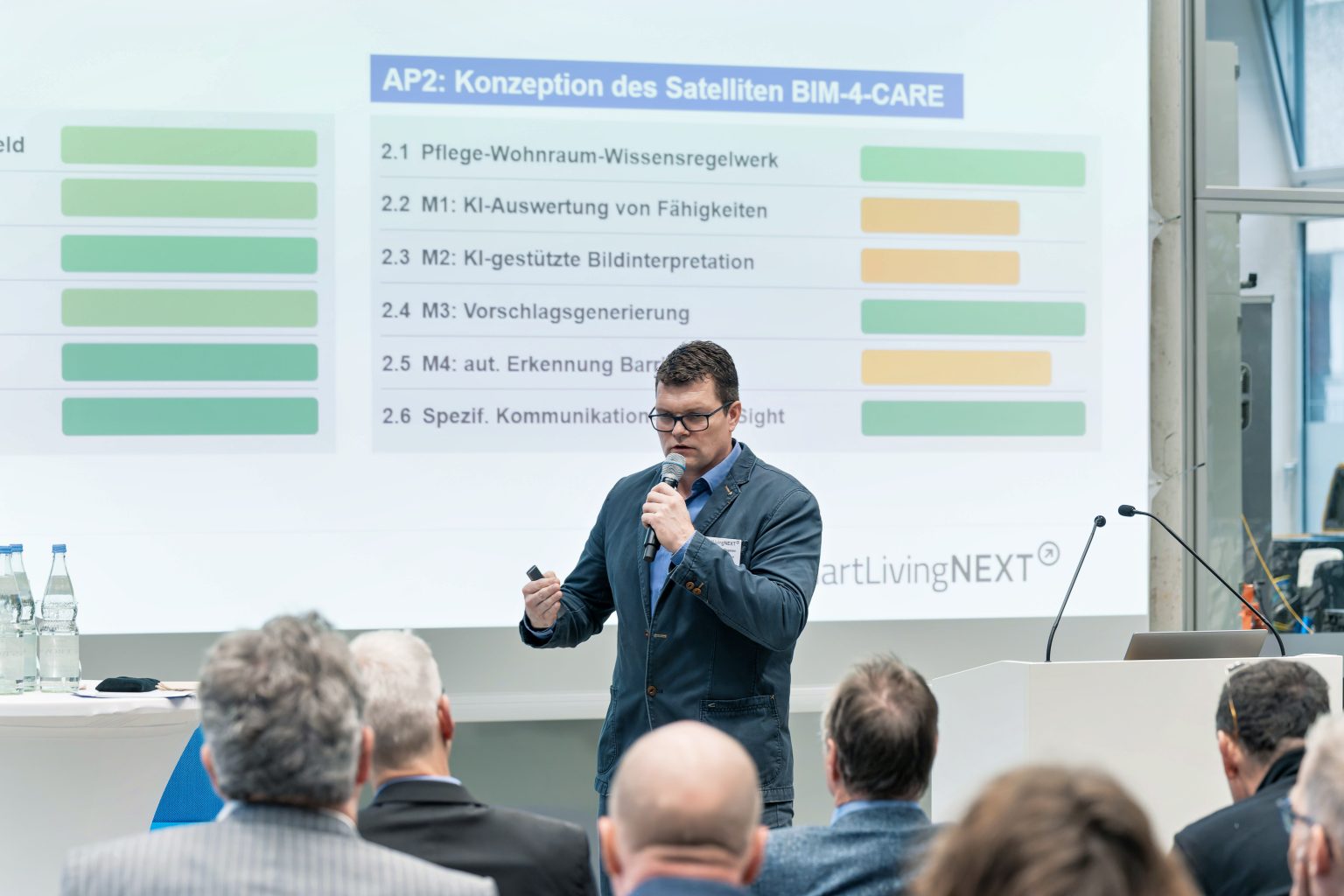
DuITeasy: Smart home innovation for a better quality of life
DuITeasy is the first project in the technology program to use the SmartLivingNEXT Dataspace Blueprint. Following the successful deployment and connection of various test apartments of the consortium partners German Research Center for Artificial Intelligence (DFKI) and easierLife, it went live in July 2024. This means that the project developers can now set up an assistance dataspace (ADS) including intelligent applications and basic services. This ADS contains all the data, interfaces and systems required for assistance services. Florian Böhle, research project manager at EasierLife GmbH and consortium leader of DuITeasy: “A standardized data access point is crucial for the seamless integration and interoperability of different data sources in the DuITeasy project.” With DuITeasy, EasierLife GmbH is pursuing the goal of creating innovative and adaptive smart home solutions for senior citizens and people with reduced mobility – an important contribution to the future of home support.
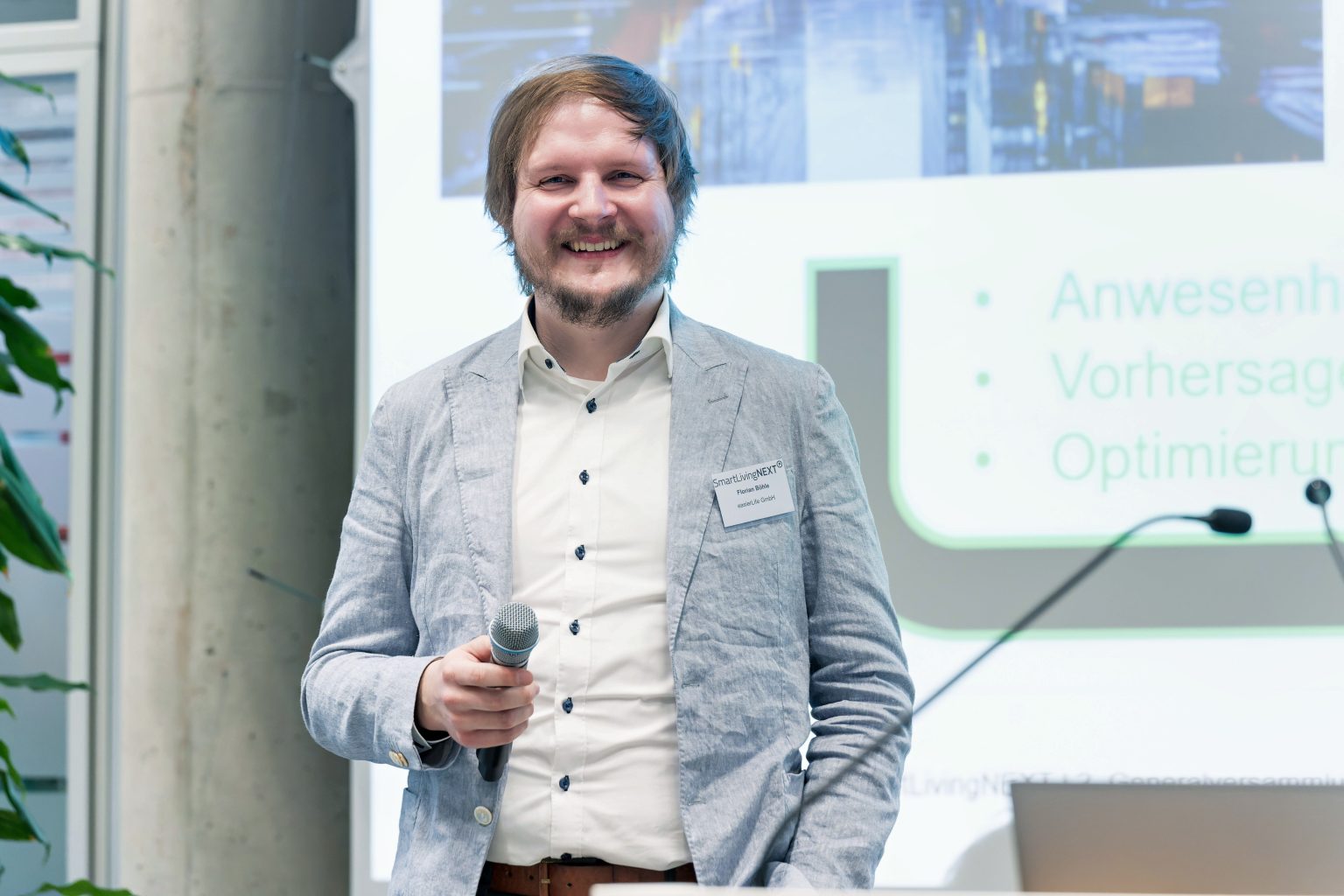
Counteracting the shortage of skilled workers in the care sector
Can technical assistance combined with AI services help to counteract the shortage of skilled workers in the care sector? This was just one of many questions that Enrico Löhrke, Managing Director of inhaus GmbH and consortium leader of ExpliCareNEXT, answered competently in his presentation based on his decades of experience in this field. The focus of his project is on simplifying care processes and easing staff shortages through technical assistance equipment in the living environment and artificial assistance by enabling unskilled workers to carry out high-quality care activities using natural language instructions. This is intended to counteract the growing shortage of skilled workers in Germany. The declared goal for this year is to connect to the SmartLivingNEXT dataspace in order to develop innovative business models on this basis.
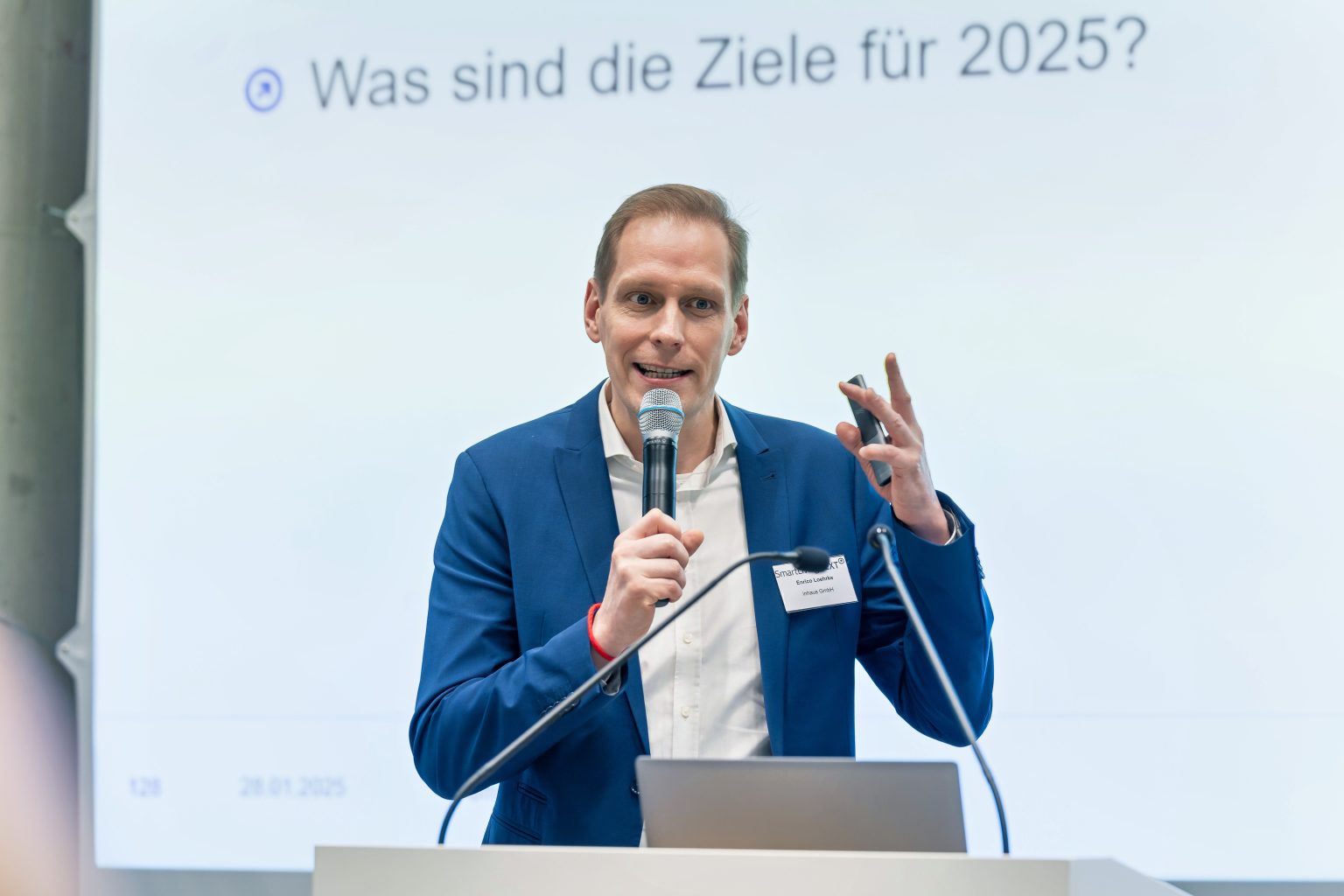
Health-oriented living for older people
Last but not least, Nizar Müller from the Hospital zum Heiligen Geist and consortium leader at GAiST presented that the connection to the SmartLivingNEXT data room was also imminent. To this end, apartments were equipped with sensors to collect and analyze health-related information. With the connection to the data room, patients, carers and doctors can be supported in their activities to make life in their own four walls more liveable. By using open source and medical and industrial standards, the project aims to reduce costs and personnel requirements in the healthcare sector.
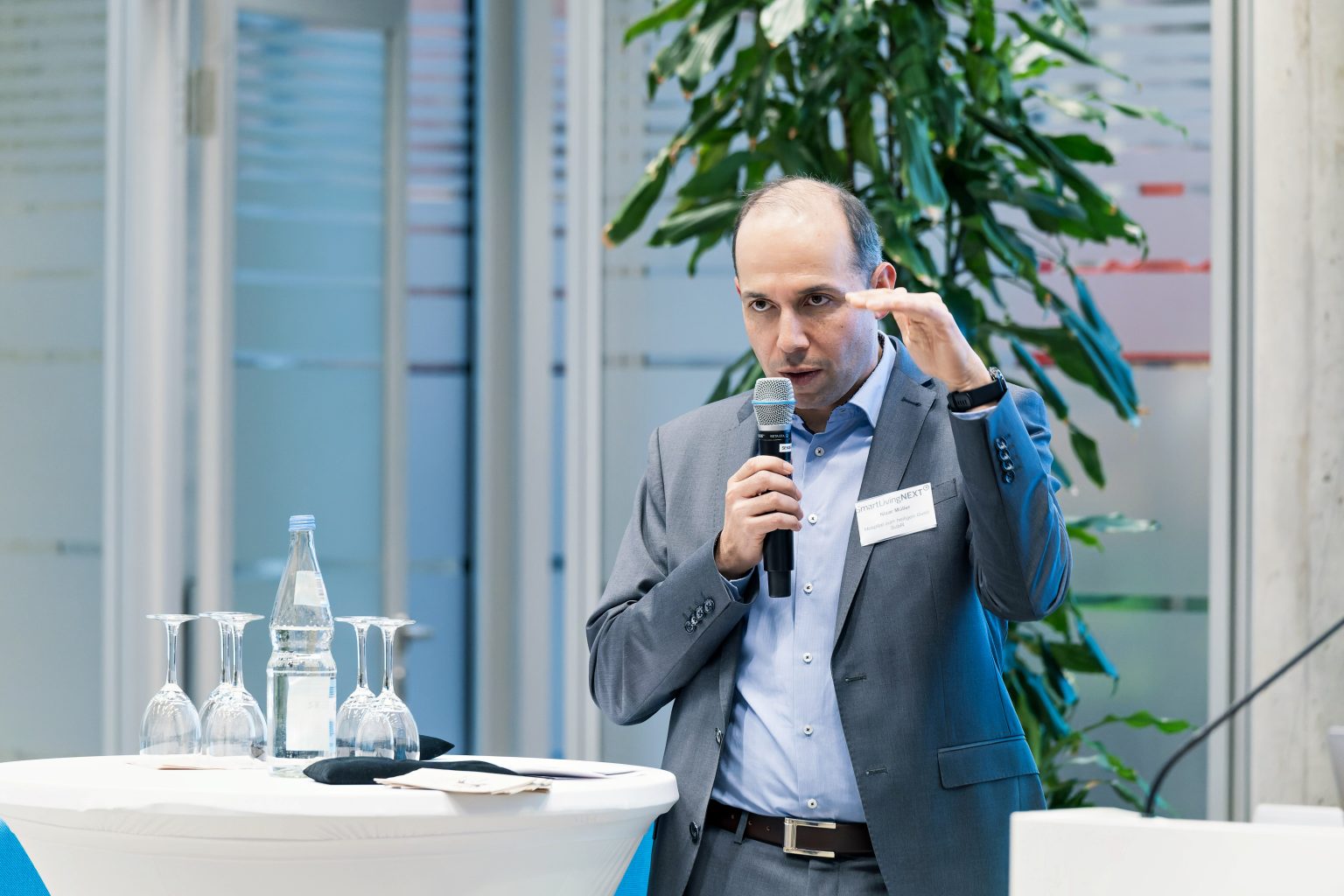
Outlook of the accompanying research
In a good-humoured and motivating manner, Dr. Marieke Rohde gave an overview of the tasks and implementation as well as an outlook on possible business models and their exploitation on behalf of the accompanying research. The accompanying research promotes cooperation between the satellite projects and the main project in order to ensure that everything runs smoothly.
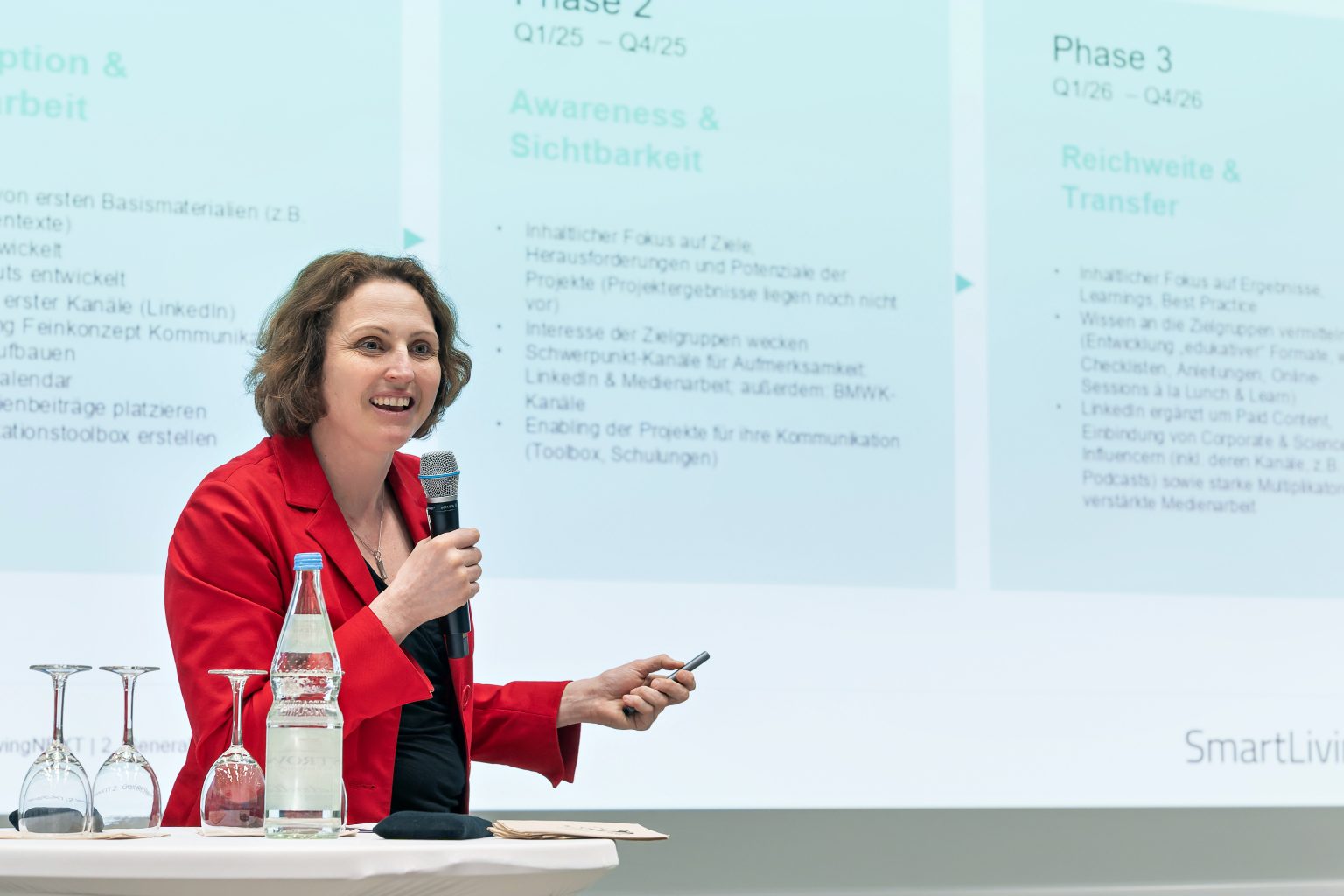
The second SmartLivingNEXT General Assembly underlined the project’s role as a key player in the digitalization of residential buildings. The enormous progress made by the individual projects shows that the course has already been set for real operation and the project is taking great strides towards continuity. The technology program thus offers promising technological applications and smart services for the future of intelligent living.
Listen to the article (in German)
Editorial office:
Ilka
Klein
Category:
Flagship project
Copyright information
Fotos: Stefan Zeitz
